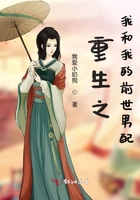Ella Linton drove to a certain shop not far from Piccadilly,--the only shop where the arranging of feathers is treated as a science independent of the freaks of fashion,--and at the door she met a tall man with the complexion of mahogany but with fair hair and mustache.
People nudged one another and whispered his name as they walked past him before standing at the shop window, pretending to admire the feathers, but in reality to glance furtively round at the man.
The name that they whispered to one another after the nudge was Herbert Courtland.
He took off his hat--it was a tall silk one, but no one who knew anything could avoid feeling that it should have been a solar toupee--when Mrs. Linton stepped from her victoria.
"Oh, you here!" said she. "Who on earth would expect to see you here?"
"You," said he.
"What?"
"You asked me a question. I answered it."
She laughed as they walked together to the door of the feather shop.
"It appears to me that you have a very good opinion of yourself and a very bad one of me," she remarked, smiling up to his face.
"That's just where you make a mistake," said he.
"How?"
"If I did not think well of you I should not have ordered Parkinson to make you a fan of the tail of the meteor."
"Oh, Bertie, you have done that?"
"Why should I not do it?"
"But it is the only one in the world."
"Ah, that's just it. You are the only one in the world."
She laughed again, looking up to his face.
"Well, we'll have a look at it, anyway," said she.
They went into the shop to see the tail feathers of that wonderful meteor-bird which Herbert Courtland had just brought back from New Guinea with him--the most glorious thing that nature had produced and a great explorer had risked his life to acquire, in order that Mrs.
Linton might have a unique feathered fan.
About the same time the Rev. George Holland met in the same thoroughfare his friend and patron, the Earl of Earlscourt.
"By the Lord Harry, you've done for yourself now, my hearty!" cried the earl. "What the blazes do you mean by attacking the Word of God in that fashion?"
"Tommy," said the Rev. George Holland, smiling a patronizing smile at his patron, "Tommy, my friend, if you take my advice you'll not meddle with what doesn't concern you. You're a peer; better leave the Word of God to me. I'm not a peer, but a parson."
"I'll not leave it with you; it isn't safe," said the peer. "Anything more damnably atheistical than that book of yours I never read."
"And you didn't read it, Thomas; you know you only read a screeching review of it, and you didn't even read that through," said the parson.
"Who told you that?" asked the patron. "Well, at any rate I read what you said about Ruth. It was quite scandalous! Ruth! Good Lord! what character is safe nowadays? One of the loveliest of the women of the Bible--my wife says so. She knows all about them. And the best painters in the world have shown her standing among the field of oats.
By the Lord, sir, it's sheer blasphemy! and worse than that, it's ****** people--good, religious people, mind, not the ruck--it's ****** them ask why the blazes I gave you the living. It's a fact."
"I'm sorry for you, Tommy--very sorry. I'm also sorry for your good religious people, and particularly sorry for the phraseology of their earnest inquiries on what I am sure is a matter of life and death to them--spiritually. That's my last word, Thomas."
"And you were doing so well at the Joss-house, too." Lord Earlscourt was shaking his head sorrowfully, as he spoke. "We were all getting on so comfortably. That was what people said to me--they said----"
"Pardon me, I'm a parson, therefore I'm not particular; but I can't stand the way your good religious people express themselves."
"They said, 'It's so d---- pleasant to get hold of a parson who can be trusted in the pulpit--sermons with a good healthy moral tone, and so forth. You might bring your youngest daughter to St. Chad's in the certainty that she would hear nothing that would make her ask uncomfortable questions when she got home.' It's a fact, they said that; and now you go and spoil all. The bishop will have a word to say to you some of these days, my lad. He ran away to the Continent, they tell me, when your book was published, and it's perfectly well known that he never runs away unless things look serious. When the bishop is serious, those that can't swim had best take to the boats."
"I'll ask you for a seat in your yacht, Tommy. Meantime kindest regards to her ladyship."
"Oh! by the way, it's not true, is it, that the girl has thrown you over on account of the book?"
For an instant there came a little flush to the face of the Rev.
George Holland; then he shifted his umbrella from one hand to the other, saying:
"If you mean Phyllis, all I can say in reply is that she is the best and the truest girl alive at present. I've an engagement at a quarter-past six."
"Well, good-by. It was my missus who said that the girl would throw you over on account of that book."
"Ah! Good-by."
"Honestly speaking, George, old man, I think you've made a mistake this time. People don't mind much about Jacob and Jonah and Jeremiah and the whole job lot of Sheenies; but they do mind about Ruth. Hang it all man! she was a woman."
"Ah! so was Jezebel, and yet--ah! good-by. I'll be late for my appointment."
"See you on Sunday," said the earl, with a broadish smile.
And so he did.















